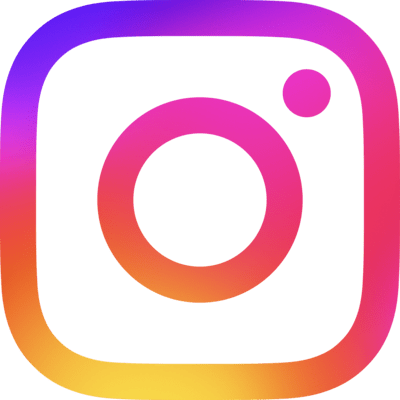The Ultimate Guide: 10 Event Marketing Ideas for Maximum Impact
Kyle
Co-founder @ AdVentur.ai

The Power of Event Marketing
In the world of marketing, event marketing holds immense potential in creating impactful experiences that resonate with audiences. By organizing and promoting events, businesses can engage with their target audience in a more direct and immersive way. This section explores the importance of event marketing and the key goals and objectives associated with it.
Understanding the Importance of Event Marketing
Event marketing plays a pivotal role in driving brand awareness, fostering customer loyalty, and generating valuable leads. Unlike traditional marketing channels, events provide an opportunity for face-to-face interactions, enabling businesses to build meaningful connections with their audience. These interactions create memorable experiences that leave a lasting impression on attendees, leading to increased brand recognition and affinity.
Additionally, events allow businesses to showcase their products or services in a tangible and experiential manner. Whether it's a product launch, a conference, or a trade show, the physical presence of the brand and its offerings can leave a stronger impact than other marketing mediums. Attendees can see, touch, and experience the brand firsthand, which helps in building trust and credibility.
Furthermore, events create a sense of exclusivity and community. By bringing like-minded individuals together, businesses can foster a sense of belonging and create a shared experience. This sense of community can result in increased brand loyalty and advocacy, as attendees feel connected to the brand and its values.
Key Goals and Objectives of Event Marketing
Event marketing encompasses a range of goals and objectives, depending on the specific needs and objectives of the business. Some common goals include:
-
Brand Awareness: Events provide a platform to showcase the brand and increase its visibility among the target audience. By creating memorable experiences and engaging content, businesses can enhance brand recall and recognition.
-
Lead Generation: Events offer an opportunity to capture leads and gather valuable customer information. Through activities such as contests, giveaways, or lead capture forms, businesses can build a database of potential customers for future marketing efforts.
-
Product Launch: Events can be an effective way to introduce new products or services to the market. By creating a buzz and generating excitement, businesses can generate interest and drive sales for their latest offerings.
-
Networking and Relationship Building: Events bring together industry professionals, influencers, and potential partners. Networking opportunities allow businesses to establish valuable connections, foster collaborations, and expand their professional network.
-
Education and Thought Leadership: Events can serve as a platform to share knowledge, insights, and expertise with attendees. By organizing workshops, presentations, or panel discussions, businesses can position themselves as thought leaders in their industry.
By setting clear goals and objectives, businesses can tailor their event marketing strategies to achieve maximum impact. Whether it's through social media promotion, influencer collaborations, or hosting webinars, the possibilities for event marketing are vast. For more ideas and strategies, check out our article on event marketing strategies.
As a marketer or event manager, understanding the power and potential of event marketing is crucial for driving success. By leveraging the unique aspects of events, businesses can create memorable experiences, foster meaningful connections, and achieve their marketing goals.
10 Event Marketing Ideas for Maximum Impact
To make your events stand out and maximize their impact, it's essential to employ effective event marketing strategies. Here are ten ideas that can help you create a buzz and attract a larger audience.
1. Social Media Promotion Strategies
Utilize the power of social media to promote your event. Create engaging content that highlights the key features and benefits of attending. Leverage popular platforms like Facebook, Instagram, and Twitter to reach a wider audience. Encourage attendees to share their excitement and use event-specific hashtags, which can help generate buzz and increase visibility. For more tips on event marketing through social media, check out our article on event marketing social media.
2. Influencer Collaborations
Partnering with influencers who align with your event's target audience can significantly boost your reach and credibility. Collaborate with influencers who have a strong presence in your industry or niche. They can help promote your event through their social media channels, blog posts, or even by hosting live Q&A sessions. Their endorsement and engagement can attract a broader audience and increase the chances of event success.
3. Hosting Webinars or Virtual Events
In today's digital landscape, hosting webinars or virtual events has become increasingly popular. These online events provide a convenient way for attendees to participate and engage with your content from anywhere in the world. Leverage webinar platforms to create interactive sessions, offer valuable insights, and establish your brand as an authority in the industry. Ensure that your virtual events are well-promoted through email marketing campaigns and social media channels.
4. Creating Compelling Event Landing Pages
Designing compelling event landing pages on your website is crucial for capturing the attention of potential attendees. Craft persuasive copy that clearly communicates the value and benefits of attending your event. Include eye-catching visuals, testimonials from past attendees, and a user-friendly registration process. Make sure your landing pages are optimized for mobile devices, as many people now browse the internet on their smartphones or tablets.
5. Utilizing Email Marketing Campaigns
Email marketing remains a powerful tool for event promotion. Build an email list of interested individuals and send targeted campaigns to generate excitement and encourage registrations. Craft personalized and compelling emails that highlight the unique aspects of your event, such as keynote speakers, workshops, or networking opportunities. Track open rates and click-through rates to gauge the effectiveness of your campaigns.
6. Partnering with Local Businesses or Organizations
Collaborating with local businesses or organizations can help expand your event's reach and tap into their existing customer base. Identify complementary businesses or organizations that share your target audience. Explore cross-promotion opportunities, such as co-hosting an event, offering exclusive discounts, or exchanging promotional materials. By leveraging their networks, you can attract a more diverse audience to your event.
7. Offering Early Bird or Exclusive Discounts
Create a sense of urgency and excitement by offering early bird or exclusive discounts for event registrations. These limited-time offers can incentivize potential attendees to commit early and secure their spot. Promote these discounts through various channels, such as social media, email marketing, and your event landing pages. Additionally, consider offering group discounts or special rates for students or industry professionals to attract a wider range of participants.
8. Implementing Interactive Experiences
Introduce interactive experiences during your event to enhance attendee engagement and create memorable moments. Incorporate live polls, Q&A sessions, networking activities, or hands-on workshops. These interactive elements encourage attendees to actively participate and connect with each other, fostering a sense of community and making your event more impactful.
9. Leveraging User-Generated Content
Encourage attendees to share their experiences and thoughts about your event on social media using event-specific hashtags. Curate and share this user-generated content on your social media platforms, website, or event landing pages. This not only provides social proof but also creates a sense of community and excitement around your event. For more ideas on event marketing techniques, check out our article on event marketing techniques.
10. Measuring and Analyzing Event Success
To gauge the effectiveness of your event marketing efforts, it's essential to measure and analyze the success of your event. Track key metrics such as ticket sales, attendee feedback, social media engagement, and website traffic. Use this data to identify areas of improvement and make informed decisions for future events. Analyzing event success allows you to refine your strategies and ensure maximum impact in your future endeavors.
By implementing these event marketing ideas, you can create a strong promotional strategy that drives attendance and maximizes the impact of your events. Remember to set clear objectives, plan in advance, engage with attendees, and continuously evaluate your marketing efforts to achieve the best results.
Tips for Successful Event Marketing
To ensure a successful event marketing campaign, it's important to implement effective strategies and techniques. Here are some tips that can help you maximize the impact of your event marketing efforts:
Setting Clear Objectives and Goals
Before diving into event marketing, it's crucial to establish clear objectives and goals. Determine what you want to achieve through your event, whether it's increasing brand awareness, generating leads, driving sales, or fostering customer loyalty. By clearly defining your goals, you can align your marketing strategies and measure the success of your event. For guidance on creating a comprehensive event marketing plan, check out our article on event marketing plan.
Planning and Organizing in Advance
Successful event marketing requires careful planning and organization. Start by creating a timeline that outlines key milestones and deadlines. Develop a detailed checklist of tasks, such as securing a venue, booking speakers or performers, and arranging logistics. By planning in advance, you'll have ample time to execute each step of your event marketing plan effectively. For inspiration and ideas on event marketing strategies, browse through our article on event marketing strategies.
Engaging with Attendees Before, During, and After the Event
Engagement is key to a successful event marketing campaign. Build excitement and anticipation by engaging with your target audience before the event. Utilize social media platforms, email marketing, and other channels to share event updates, exclusive content, and behind-the-scenes glimpses. During the event, encourage attendees to participate actively through interactive activities, contests, and live polling. After the event, continue the engagement by sharing highlights, testimonials, and follow-up content to maintain the momentum. For tips on leveraging social media for event marketing, refer to our article on event marketing social media.
Continuously Evaluating and Improving Your Marketing Efforts
To ensure ongoing success in event marketing, it's essential to evaluate and improve your strategies. Monitor key metrics such as attendance rates, ticket sales, social media engagement, and post-event feedback. Analyze the data to identify areas of improvement and make informed decisions for future events. Experiment with different techniques, incorporate attendee feedback, and stay up-to-date with industry trends to refine your event marketing approach. For inspiration and real-world examples of successful event marketing campaigns, explore our article on event marketing examples.
By following these tips, you can enhance the effectiveness of your event marketing initiatives, drive engagement, and achieve your desired outcomes. Remember to tailor your strategies to the unique characteristics of your target audience and continuously adapt to their preferences. With careful planning, effective communication, and continuous evaluation, you can make a lasting impact with your event marketing efforts. For more insights and techniques, explore our article on event marketing techniques.
Improve your ROI with stunning automated campaigns. Be part of the journey!
What kind of creatives can I craft using AdVentur.ai?
Elevate your social media presence across platforms like Facebook, Instagram, Twitter, and LinkedIn with our versatile image creation toolkit. Whether you're designing posts, stories, ads, or seeking inspiration for custom graphics, AdVentur.ai is your go-to digital artist.
How can I ensure my creatives resonate with my brand identity?
We use your brand colours and fonts to generate on-brand creatives for your social media accounts.
Is it possible to use bespoke fonts in my designs?
Absolutely! Infuse your brand's unique voice into every design by incorporating your custom fonts, ensuring consistency across all your communications and building greater trust with your followers.
How do you use AI with my brand identity?
After entering your brand details and identity, our AI is trained on this information to ensure your content resonates with your brand.
What if I need to cancel my subscription?
While we'd hate to see you go, you have complete control over your subscription. Cancel anytime directly from the app's subscription section with just a click.
Product
Free Tools
Copyright © 2020-2024 Social Image Ltd. Company number 12541817 All rights reserved. 27 Old Gloucester Street, London, WC1N 3AX, UK



